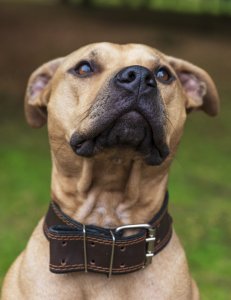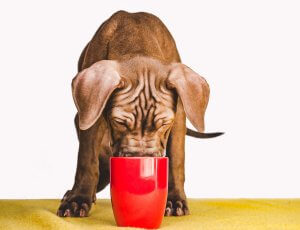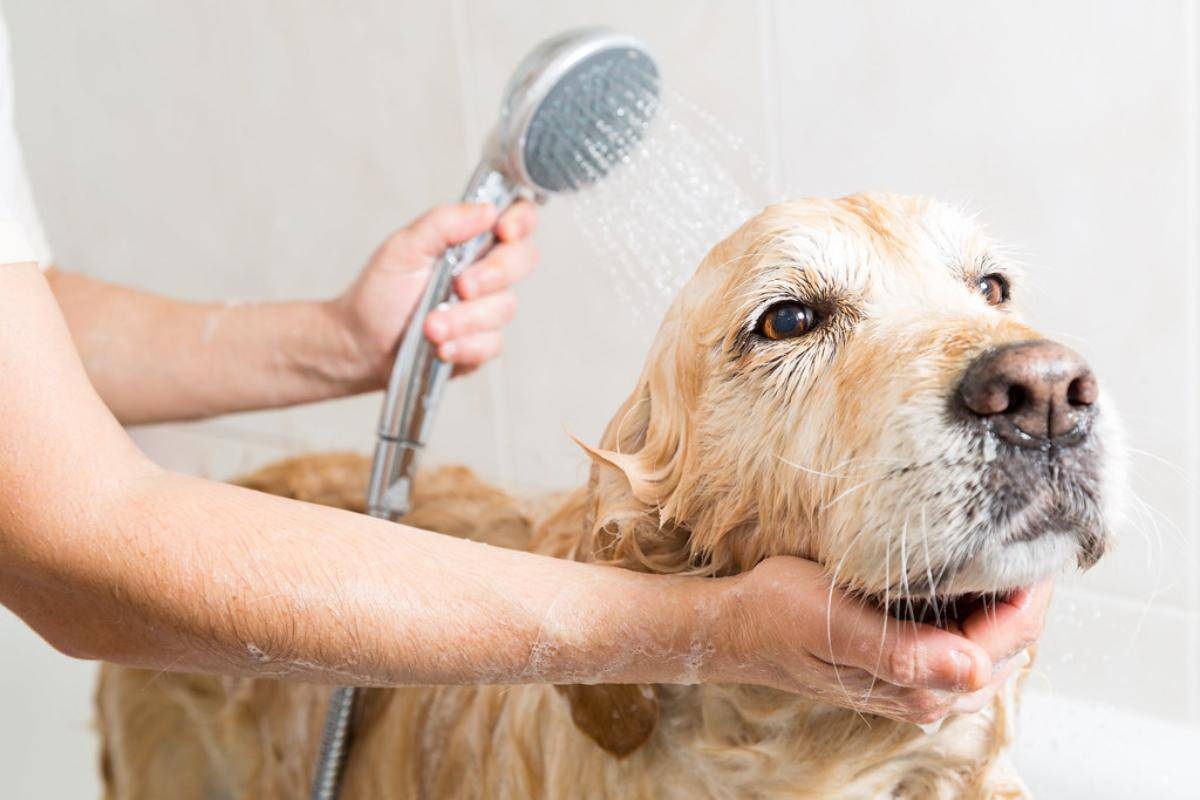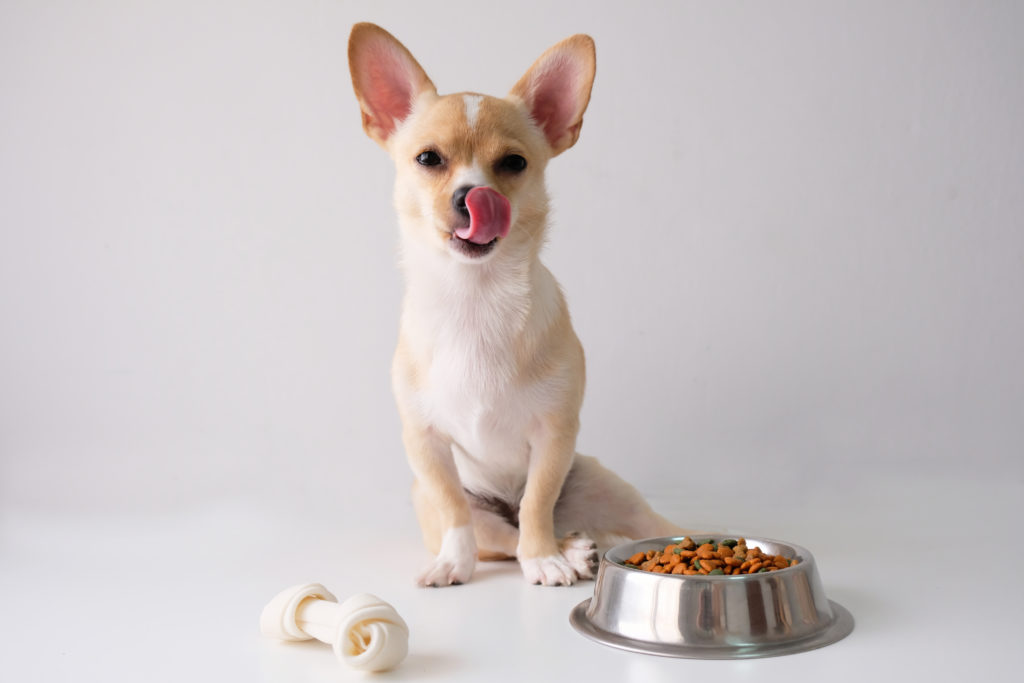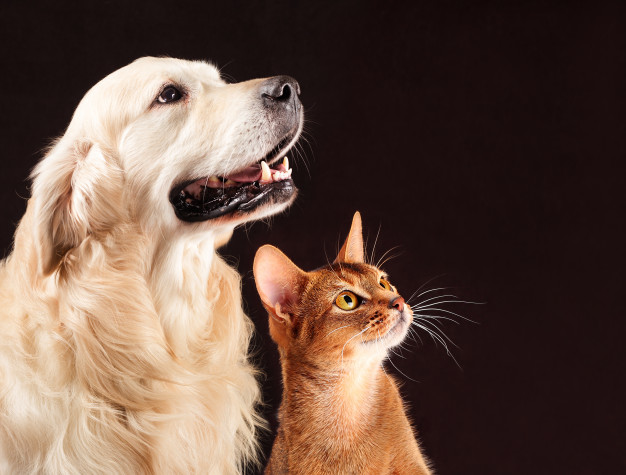The muscular body needs a high protein diet!
The question often asked by the new pitbull owners is:
What is the best food (croquettes or wet food) for dogs to give to a pitbull?
Am I giving my pitbull a nutritionally balanced food?
The new dog owners often worry about the food they give their dogs or puppies, and frankly, they should worry.
A dog’s health is directly linked to the food it eats. The best pitbull food can extend the life of your dog and increase its quality. For this reason, it is essential to look for dog food with high protein content for pit bulls: but it is not an easy search because there are tons of brands of dog food on the market, and they are all advertised as the best brand of food for dogs. So how do you know which brand of kibble is best for your pitbull?
Feeding Pittbull Is Simple
Check the top five ingredients in all quality dog foods and make sure none of them is a source of low-quality carbohydrates or proteins.
Sources of low-quality protein are meat and bone byproducts, while poor quality carbohydrates come from cereals, such as wheat, corn, or soy. By avoiding deficient quality protein and carbohydrate sources, you will lower the risk of developing diseases of different types in pit bulls, but this is a topic that we will address in more detail later. We begin our search for the best food for pit bulls.
Pitbull calorie requirements
To estimate the daily calories needs of your pitbull, it is essential to know first what the weight of the dog is. The majority of pit bulls weigh between 15 and 30 kilos, we will take a weight of 20 kilos as average weight, and we will base our calculations on this.
- Pitbull seniors: 875 Cal
- Medium adult pit bulls: 1100 Cal
- Active Pitbulls: 1750 Cal
An adult pit bull weighing 20 pounds will need about 1750 calories a day to maintain his active lifestyle. The age and activity level of a dog plays an essential role in determining what the calorie requirement should be and significantly conditions your pitbull’s diet. Older dogs will need about 875 calories a day, unlike growing puppies and young adults who will have a greater need.
Growing puppies, breastfeeding mothers, and young pit bulls will need about 1100 calories a day to keep themselves in good health. Pit bulls have a strong and muscular body (this makes a lot of people think that these dogs are dangerous) and tend to love food, sometimes too much.
You should, therefore, measure the amount of food you give her to prevent her from becoming overweight or obese. Weight gain would result in many health problems as your dog ages. Being overweight will also make your dog’s quality of life worse. Most adult pit bulls will be fine with two small meals a day instead of one more substantial meal.
However, growing puppies should eat three meals a day until they are old enough to start eating with adult rhythms.
The micronutrient needs of the pitbull
To be sure that your pitbull is in good health, it is crucial to give it a balanced diet. A balanced diet will not only improve your mental and physical health but will extend the life span and improve its quality. Pit bulls tend to suffer from several health problems that can be fatal if not treated in time. Feeding your pit bull, a high-protein, low-grain diet can be an excellent preventative measure.
Protein
Pit bulls are muscular dogs, and, for this reason, you will have to give them a great deal of protein.
Proteins in a dog’s body are primarily responsible for maintaining muscle mass, repairing old tissues, and bone growth. Pit bulls are playful and very active by nature, so they need a high protein content in their daily diet to maintain their active lifestyle.
The question is, how much protein is needed to prepare the most suitable food to help a pitbull increase muscle mass, and, how many proteins are too many?
Many nutritionists usually recommend a 25% -30% protein in a pitbull’s diet, and this is sufficient for typical adult dogs. However, if your dog does trailing, hunts, or participates in other sports activities, then it is advisable to include at least 30% -40% protein in your diet.
Some pitbull enthusiasts recommend giving them even more, 40% -50% protein because it helps strengthen your dog’s muscles and reduces the risk of any common injury. The amount of protein in your pitbull’s diet is not the only important factor: so are the sources from which the proteins come.
Let your dog eat lean meat such as chicken, beef, turkey, and fish. These are excellent sources of protein if you want your pitbull to be healthy.
Fats
Fat is a source of energy for your dog. It is, therefore, also one of the main components of your dog’s diet. The fat keeps your dog’s skin healthy and keeps his skin shiny, as well as keeping your dog’s body temperature stable. In most top dog food brands, the fat content is maintained at a satisfactory level, and the fat is added to increase the flavor.
Therefore, you do not have to worry about the fat content when buying dog food for your pitbull.
The minimum fat requirement in a dog’s diet is typically 10%. However, it is advised to have content between 15% and 25% of the fat in your pitbull’s diet. Excess fat is not suitable for your dog’s health, putting him at risk of developing cardiovascular diseases. This is the same effect that excess fat has on humans.
A good source of fat in your dog’s diet usually is sufficient. Like proteins, fat varies in quality, depending on its source. The source of fat should, therefore, be taken into consideration. Chicken fat, fish, and flaxseed are what you should look for in your dog’s food ingredients.
Vitamins and minerals
All the vitamins, minerals, and other nutrients your dog might need usually are in the recipes of the majority of high-quality dog foods. Vitamins and minerals help your dog have healthy skin and make its immune system stronger, thus preventing health problems.
Vitamins, therefore, play an essential role in the growth and health of your dog. Vegetables and fruit are the primary sources of vitamins and minerals a dog needs. This is the reason why they are one of the main ingredients in almost all known brands of dog food. You should look for a dog food that contains a wide variety of vegetables and fruits. The more type there is, the better.
Carbohydrates
Carbohydrates are known for their ability to supply energy to all animals, including dogs. In dogs, they also help indigestion. A sufficient amount of carbohydrates in your dog’s diet will prevent your dog’s body from consuming muscle mass and will, therefore, keep it healthy.
Some studies have shown that dogs do not need carbohydrates for good health, so it is perfectly acceptable to give your dog food containing a meager amount of carbohydrates. Make sure, however, that these come from high-quality sources such as barley, brown rice, sweet potatoes, and oats. Keep carbohydrate percentages in your dog’s diet and low or moderate. Avoid dog food with high carbohydrate content. In particular, you should not give your pitbull a large number of cereals because they cause some health problems.
Water
Fresh, clean water is one of the essential nutrients and is sometimes forgotten. This is in all mammals. Water helps promote digestion, removing toxins from the body, and transporting nutrients into the body.
There are a number of factors that determine the amount of water your dog needs, including your dog’s age, activity level, and surrounding environmental conditions (climate).
Pitbulls are often very active dogs, and considering their muscular bodies, they will need a considerable amount of water. An average pitbull will need a litre, and a quarter of water every day.
Typically, a pitbull will need about 300ml of water every five pounds of weight. Pit bulls are athletic dogs that tend to lose a large amount of water in their bodies quickly. They dehydrate easily and get sick soon if they don’t get enough water to drink. So keep your dog’s bowl full of fresh, clean water all the time.
Ingredients to be avoided in pitbull dog food
Most pit bulls love to eat, sometimes too much. Not all the ingredients in the food are good for pit bulls. So when buying dog food on the market, pay close attention to the five main components of the food you choose.
Most dog foods contain meat byproducts as a source of protein. These are deficient quality proteins that are mixed with bone paste. Pit bulls need a high protein content in their diet due to their muscular bodies and their active lifestyle. The byproducts should, therefore, not be included in your dog’s diet.
Considering where meat byproducts sometimes come from, these are unhealthy and non-hygienic for pit bulls. Most of the time, they are produced from dead animals and rotten meat. The nervous tissue and bones in these products make them unsuitable for consumption by your dog. Check and make sure that the proteins come from real meat.
You should avoid dog foods that contain wheat, corn, and soy as the main ingredients as they do not add much nutritional value to your dog. They are lousy quality ingredients that are only added as low-cost fillers. Fillers are ingredients that contain zero calories and zero nutrients. These ingredients pass through your dog’s stomach without leaving any nutrients. They can cause many health problems, especially in the gastrointestinal system. They are also known to cause allergic reactions in pit bulls. These ingredients are used in dog food because they are cheap and easy to obtain.
Also, avoid dog food that contains salt, sugar, artificial preservatives, and flavorings. Even these ingredients could cause allergic reactions in your dog.
Common health problems in pit bulls
Like any other breed of dog, pit bulls have a number of health problems that affect them most often. It is essential that you know what these health problems are so that you can avoid them for as many as possible. Feeding your dog a healthy, balanced diet can help prevent some of these problems.
Food allergy
Food allergies are a widespread problem in pit bulls and should not be ignored. Pit bulls can become allergic to a specific ingredient that did not cause them any problems before. In most cases, food allergies are the result of the presence of low-quality grains such as wheat, corn, and soy in your dog’s diet. These allergies can lead to skin and coat problems. In order not to cause these allergies, you will have to avoid the foods that cause allergic reactions in your dog.
Identifying the exact ingredient that causes the allergy will help you stop it. However, to avoid it, keep away from low-quality cereals.
Hypothyroidism
Hypothyroidism is a fairly common health problem in dogs. It develops due to a malfunction of the dog’s thyroid gland, which fails to produce enough hormones to support the dog’s body. Possible symptoms of this problem include an increase in your dog’s weight, sluggishness, weakness, dull skin and fur, and cold intolerance.
Thyroid hormone supplements are on the market and can be used to cure this problem. A balanced diet for your pitbull and exercise are the keys to avoiding hypothyroidism.
The twist of the stomach
This problem occurs when your dog’s stomach starts to swell or roll upon itself. This happens when the dog is unable to release the gases in the stomach. It is a serious pit bull problem that can be fatal if not treated immediately.
As soon as you see any symptoms of this problem, call your vet for a visit to your dog. Pit bulls are led to this problem because they eat very quickly and without even chewing. To prevent it, avoid low-quality grains such as wheat, corn, and soy, which produce large amounts of gas in your dog’s stomach during digestion. Instead, feed your dog high protein foods.
Another way to prevent this condition is to distribute your dog’s meals throughout the day so that they eat a smaller portion of food, but more frequently. You can also choose to split two meals into three or four if that suits you.
Finally, you should make sure that your dog doesn’t get too tired just after eating. This would result in the production of a higher quantity of gas, increasing the risks of an intestinal torsion. Let your dog rest for about an hour after eating his meal.
Hip and elbow dysplasia
Hip or elbow dysplasia is a joint problem common in large and active dog breeds. It can be of genetic origin or be a result of age. It is a serious condition and can get worse if your dog is overweight or obese. The good thing is that this is a factor that you can completely control. You must be careful not to overfeed your dog. This will help prevent your dog from becoming overweight.
Second, giving your dog more protein and fewer carbohydrates will help keep his weight down. Exercising your dog will help reduce the pressure on his hips. Other common health problems that may affect your pitbull:
- Epilepsy – a genetic problem that can cause crises in dogs.
- Cherry eye – It is a health problem in dogs caused by the weakening of the tissues in the tear gland that leads the gland to come out with a cherry-like shape on the dog’s eye.
- Filaria – a serious and widespread canine disease.
The rhythms for feeding pitbull puppies and adults
Pit bulls usually love food, so it’s not a problem to feed your dog. The problem is instead, in most cases, what to feed them and how much to feed them. Pitbull puppies less than four weeks old should take their mother’s milk.
Puppy dog food should be introduced into their diet from the age of four to seven weeks. However, the best pitbull baby food should be mixed with milk or water before feeding it to the puppy. When your puppy has between two months and a year, you should feed him solid food. Your dog is no longer a puppy after the year. It is considered adult and should be given food for high-quality adult dogs.
Adult dogs usually need to eat twice a day, while young dogs and growing puppies must eat 3 to four times a day, depending on their activity level. You should give them cookies when they are puppies, but when they grow up, you should limit the use of the biscuits to training.
Finally, an important thing to say before moving on to the food recommendations to choose is that you should be very careful when switching from one food to another. Dogs easily suffer from stomach problems and get sick when their food is changed suddenly. You should change your dog’s food gradually over a 7-10 day period. You should mix old and new food well and progressively increase the percentage of fresh food.
The best dry foods to give to a pitbull
Always consider high-quality foods, free of preservatives and flavorings, when choosing which dog food to buy for a pit bull. This will prevent your dog from having allergies and other problems that could be caused by a poor diet.
A regular amount of exercise is essential to maintain your dog’s healthy weight and therefore keep him healthy. This will not only improve your dog’s quality of life but will make him live a few more years. Another essential benefit that you will see will be to save some money on the veterinarian’s fee, having to visit him a little less often.
Frequently Asked Questions
How much should my pitbull eat?
- Pitbull seniors: 875 Cal
- Medium adult pit bulls: 1100 Cal
- Active Pitbulls: 1750 Cal

